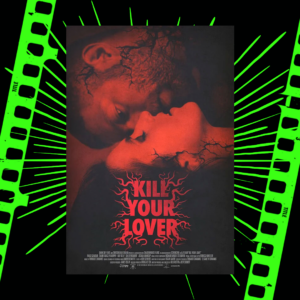
BODY HORROR “KILL YOUR LOVER” NOW AVAILABLE ON VOD IN UK & IRELAND
KILL YOUR LOVER (Winner of Dead Northern’s Best Feature 2024), a razor-sharp and visceral exploration
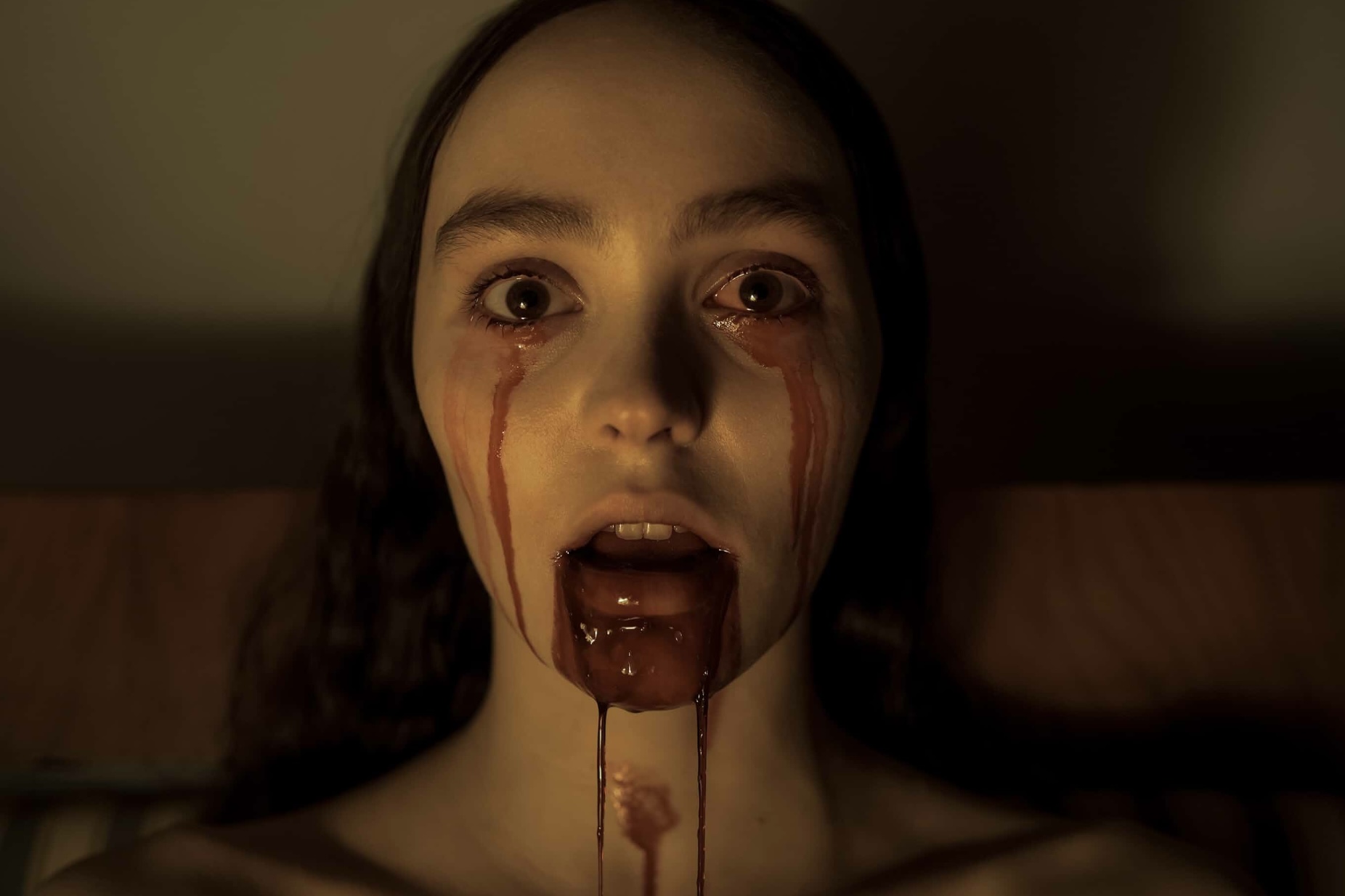
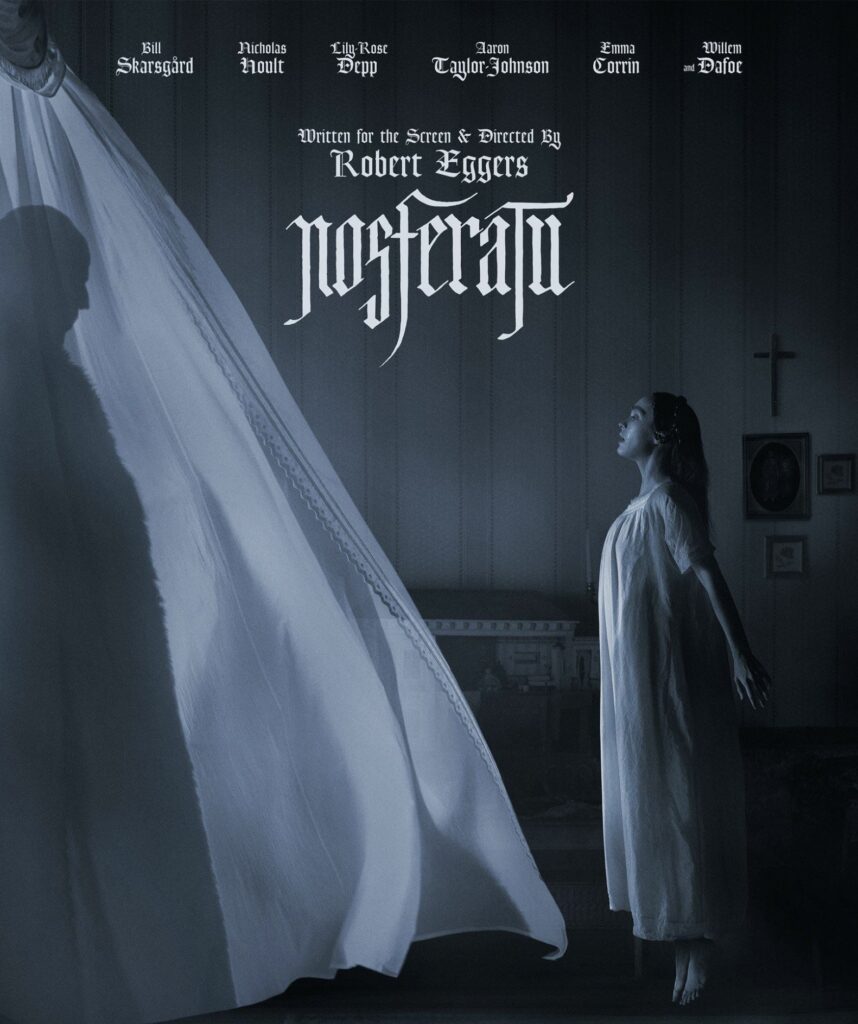
From the same mind that conjured The Witch (2015) and The Lighthouse (2019) is the long-awaited tale of Nosferatu by the brilliant Robert Eggers.
Nosferatu, a remake of the F. W. Murnau silent German Expressionist film Nosferatu: A Symphony of Horror (1922), follows Ellen (Lily-Rose Depp), who in her youth pledged her devotion to the ancient vampiric creature, Nosferatu, also known as Count Orlock (Bill Skarsgård). Years pass and Ellen is now married to Thomas (Nicholas Hoult), however, soon, the deed she once made with the malevolent nobleman is rekindled; leaving indescribable anguish in its wake.
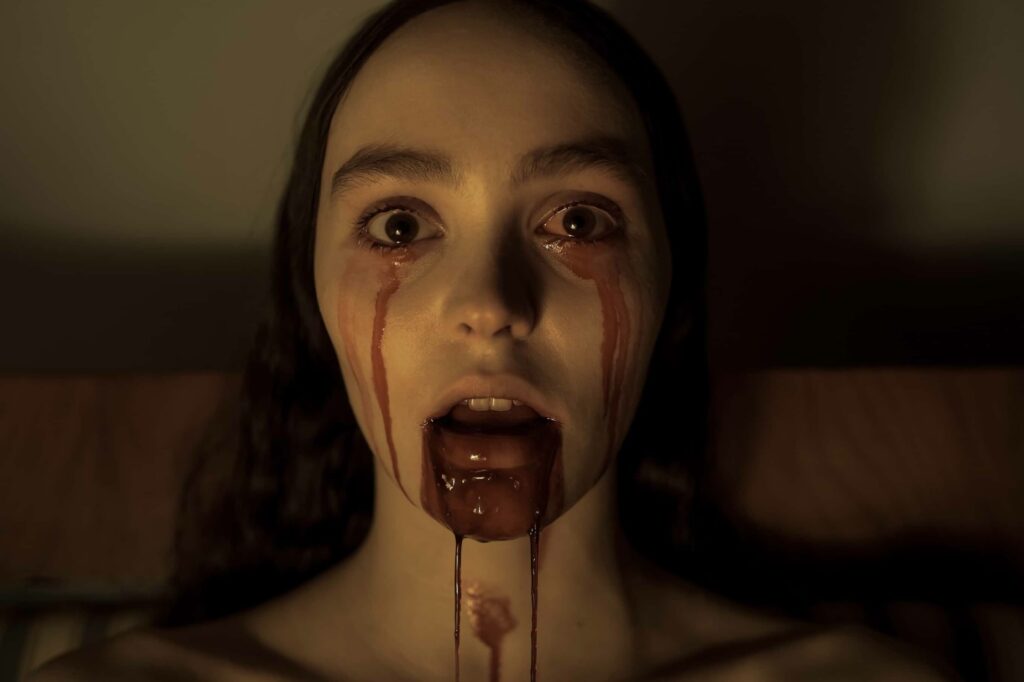
Eggers has expressed his struggle with ‘decontaminating’ the vampiric vision that lives in his mind after years of reading tales of Dracula and yonks of watching the bloodthirsty creatures on screen. Therefore, when the rights had been secured and pen had to meet paper, Eggers had to forgo the tropes and write a true, heinously evil depiction of an archaic creature that does not sparkle or tease, but kills and infests with brutal force. As such, Nosferatu oozes a profound darkness that mimics the grandiose shadow made infamous from Murnau’s classic 103 years ago. The infamous shot of the rat-like vampire’s shadow creeping up the stairs, with its clawed fingernails casting a blackened silhouette on the wall, emitting a villainous energy that has stood the test of time, is precisely what the entirety of Eggers’ Nosferatu does.
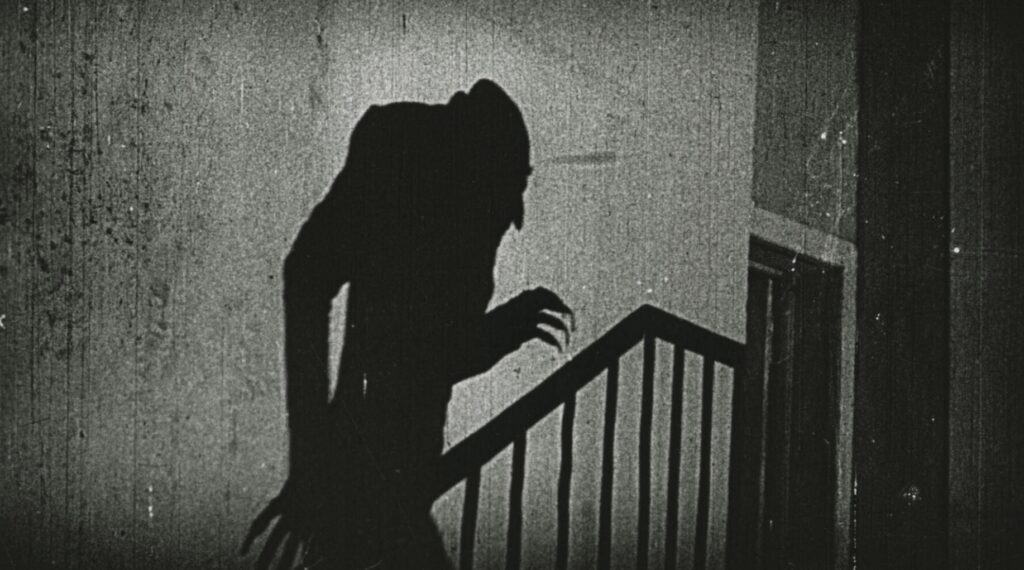
It negotiates an unspoken contract between dread and fear that rouses a foreboding, omniscient sense of wickedness, that like a spell lures the viewer in with its cinematic, engaging beauty and emotionally taunts them through a spate of daringly rich and nefarious sequences. Essentially, the film emulates a vampire, seducing its prey and punishing them for their willingness of terror.
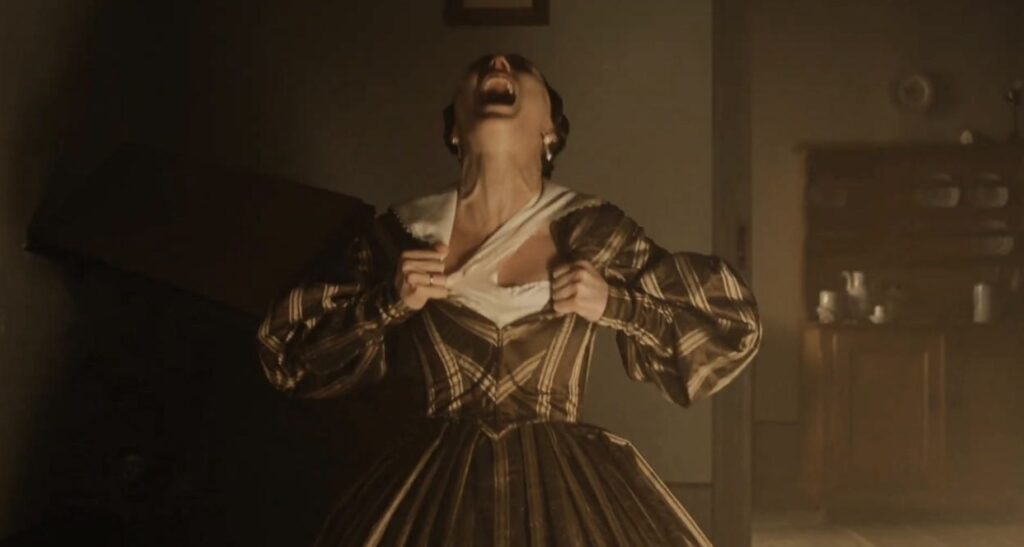
Nosferatu would not possess all of its power without the truly applaudable performances by all. Depp as the tortured soul and Nosferatu’s fixation is simply excellent, baring her acting chops and helping contextualise her character like no one else has done before. Throughout the reign of Nosferatu media, the character of Ellen has often been seen as just an object of desire and hysteria, with nothing more of a personality other than the standard flesh and bones anyone written into a script may possess. However, the ‘new Ellen’ is emotionally complex, with an enriched agency to her motives. Her actions and desires are not easy to understand and are daunting when manifested, yet, it is this aspect of nuance, trickery and intricacy that make her the most important cog in the machine.
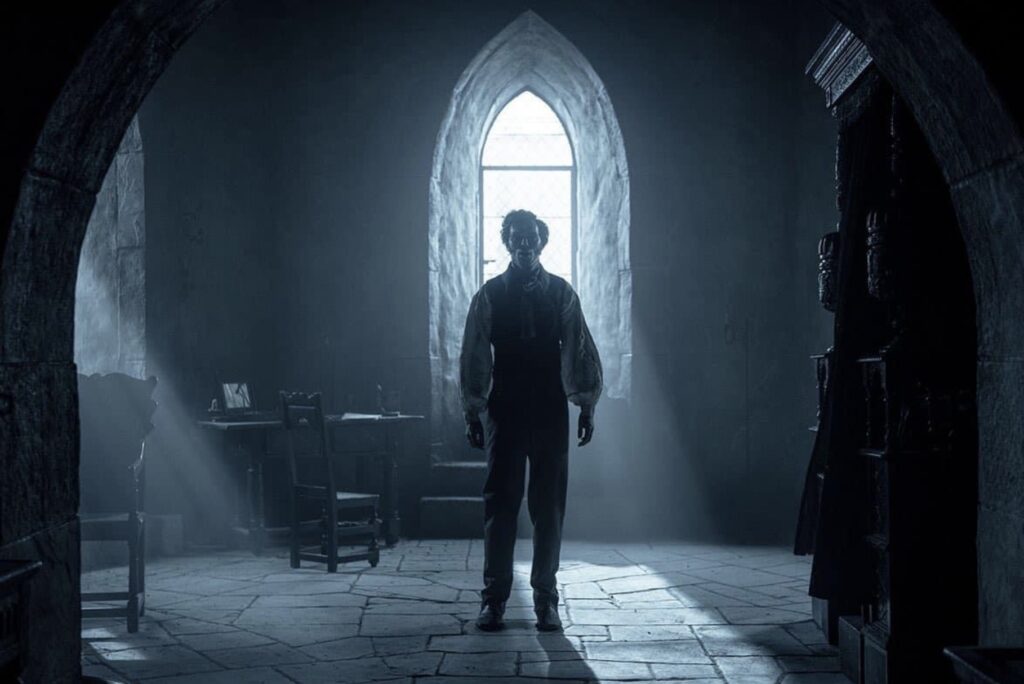
Depp’s haunting work is joined by the talents of Hoult, who as per usual delivers both vulnerability and rawness with a touch of passion and strength that makes him the ideal casting as Ellen’s partner. What’s more is Willem Defoe’s role as the occult-specialising scientist, Professor Von Franz, who acts as a catalyst in understanding the mysteries behind the masterfully deceitful vampire who is closing in on Ellen and everyone she holds dear.
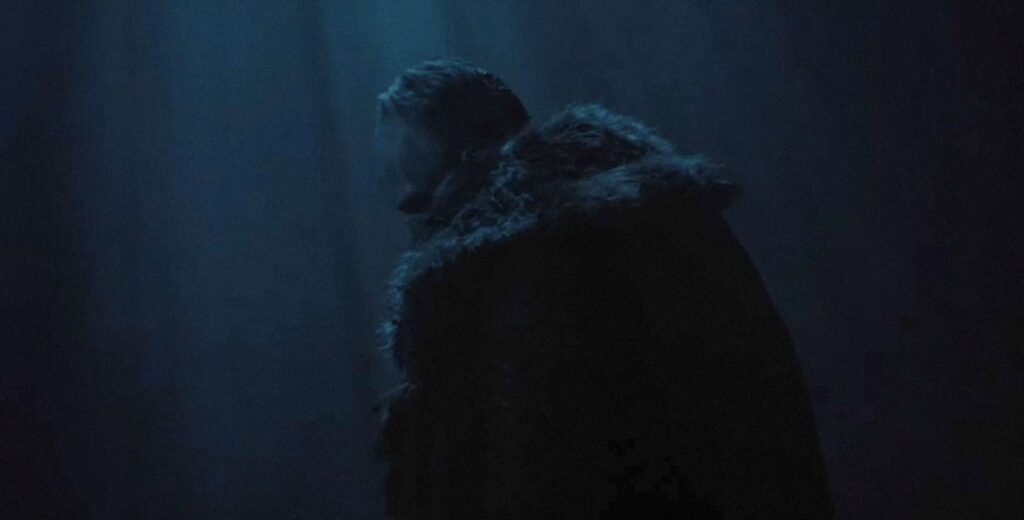
The titular Nosferatu himself, portrayed eerily by Skarsgård is the proverbial pièce de résistance that coats the entire film with an unholy aura. Skarsgård is said to have trained with an operatic vocal coach to master Nosferatu’s dramatically deep tone and drawling cadence, the results of which manage to unnerve any time the ‘dark lord’ utters his hypnotic rhetorics. This commanding presence that Skarsgård infuses into his character is not necessarily enchanting in the traditional vampiric sense by lieu of sensuality and appeal; instead, the magnetism comes from a place of otherness, where one can’t help be drawn to something so inexplicable and inhuman.
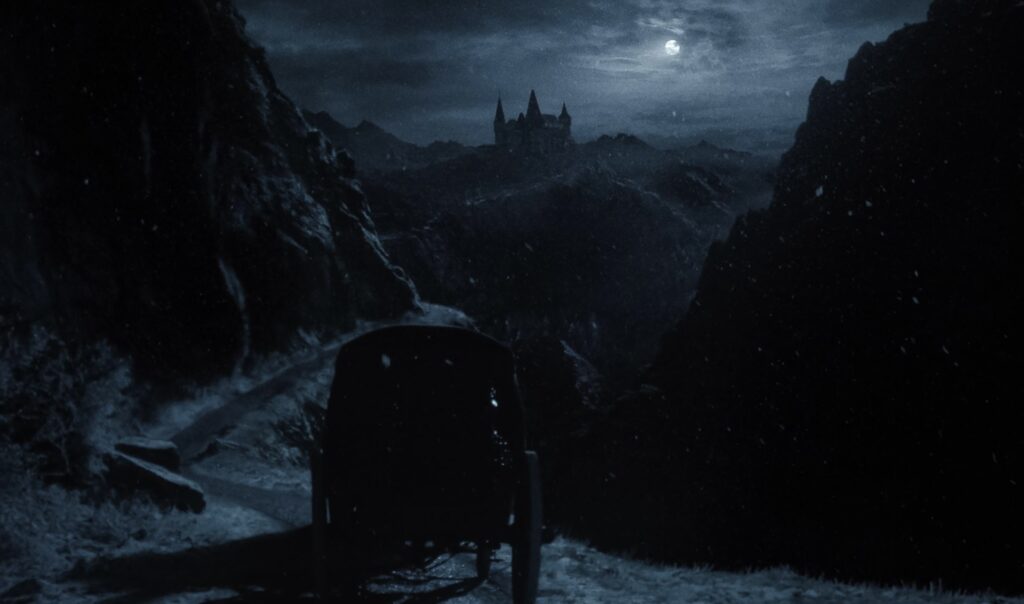
Further playing a pivotal role in the transcendental film is the design, which with all of its candlelit chamber sticks and sconce’s remains incredibly dark. The atmosphere is bleak and dire, yet opulently grand, mainly due to its castle setting, which is every bit the epitome of gothic tonalities that the film aims to be. Nosferatu has everything a promising viewer would expect, themes of lust and violence, romanticism, displays of gothic architecture and performances that bring a welcomed oomph, and yet, the film still manages to go above and beyond every one of these positive expectations and deliver a horror that has the capacity to last as well as its source material did all those years ago.
Want more top horror lists and reviews? Check out our blog here..




KILL YOUR LOVER (Winner of Dead Northern’s Best Feature 2024), a razor-sharp and visceral exploration
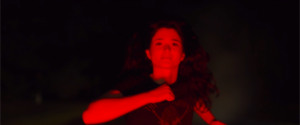
Amy (Hannah Deale) barely scrapes by; working two thankless jobs whilst simultaneously caring for her

In 2022 M3GAN dominated screens and for the most part, created a cult fanbase who

British director Danny Boyle and writer Alex Garland compelled the masses with their triumphant ‘28